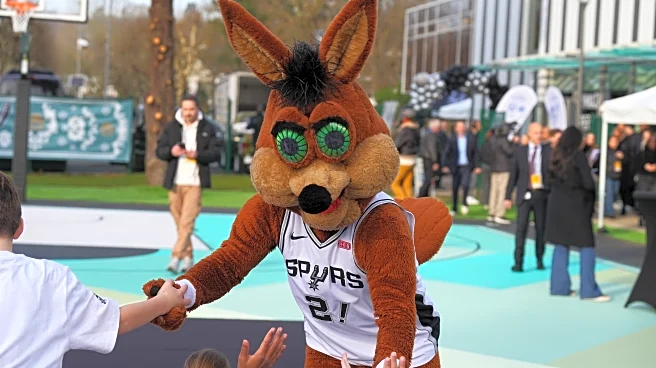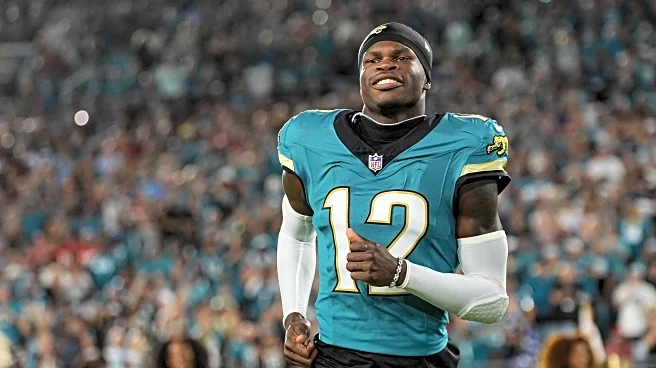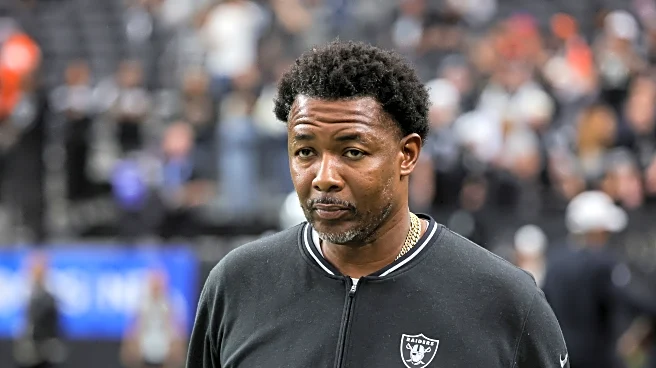What is the story about?
What's Happening?
The slang used by Generation Z in 2025 is rapidly evolving, heavily influenced by social media platforms like TikTok, Instagram, and gaming communities. According to data from Unscramblerer.com, which analyzed Google Trends, terms such as '6-7', 'Ohio', and 'mogging' are gaining popularity. '6-7' is an absurd term originating from a Skrilla song and a viral video featuring basketball player LaMelo Ball. 'Ohio' is used to describe something strange or cringey, while 'mogging' is a compliment indicating someone is outdoing others in attractiveness or skill. This evolving lexicon is part of a long-standing tradition where younger generations create language that distinguishes them from older generations.
Why It's Important?
The emergence of new slang terms highlights the dynamic nature of language and its role in cultural identity. For businesses and marketers, understanding these terms can be crucial for engaging with younger audiences effectively. The rapid spread of slang through social media also underscores the influence of digital platforms on communication. This evolution in language reflects broader societal shifts, where technology accelerates cultural changes. For educators and parents, it presents a challenge in bridging communication gaps with younger generations, emphasizing the need for adaptability in understanding and interacting with youth culture.
What's Next?
As social media continues to evolve, it is likely that new slang terms will emerge, further shaping the way younger generations communicate. Businesses and marketers may need to stay attuned to these changes to maintain relevance with Gen Z and future generations. Educational institutions might also consider incorporating discussions on digital communication trends into their curricula to better prepare students for diverse communication environments. The ongoing evolution of language will continue to reflect and influence cultural and social dynamics.
Beyond the Headlines
The use of slang by younger generations often serves as a form of identity and community building. It can also act as a barrier to entry for those not familiar with the terms, reinforcing generational divides. The ethical implications of slang, particularly when used in cyberbullying, highlight the need for awareness and education on respectful communication. As language continues to evolve, it may also influence traditional linguistic studies, prompting new research into the impact of digital communication on language development.
















